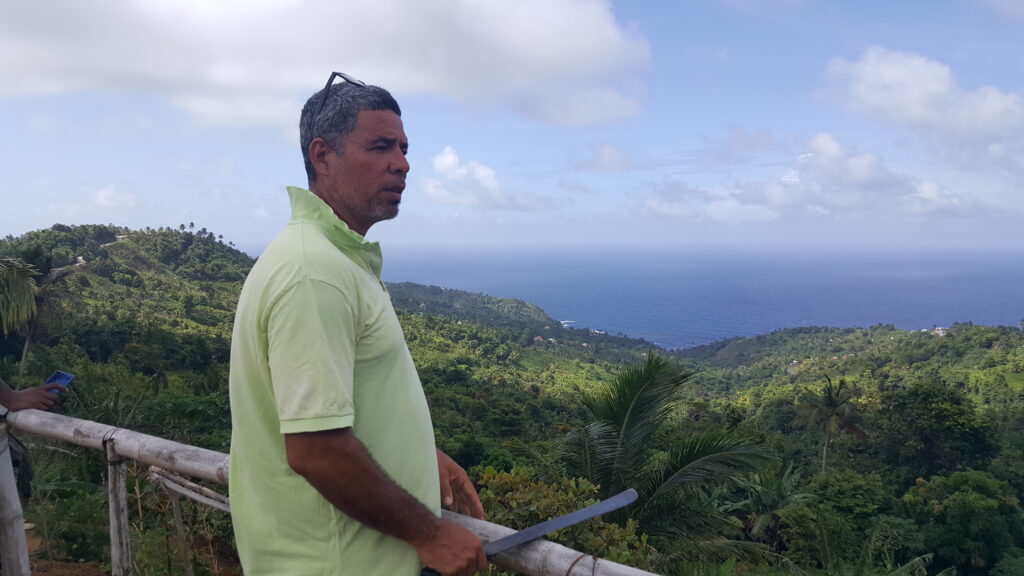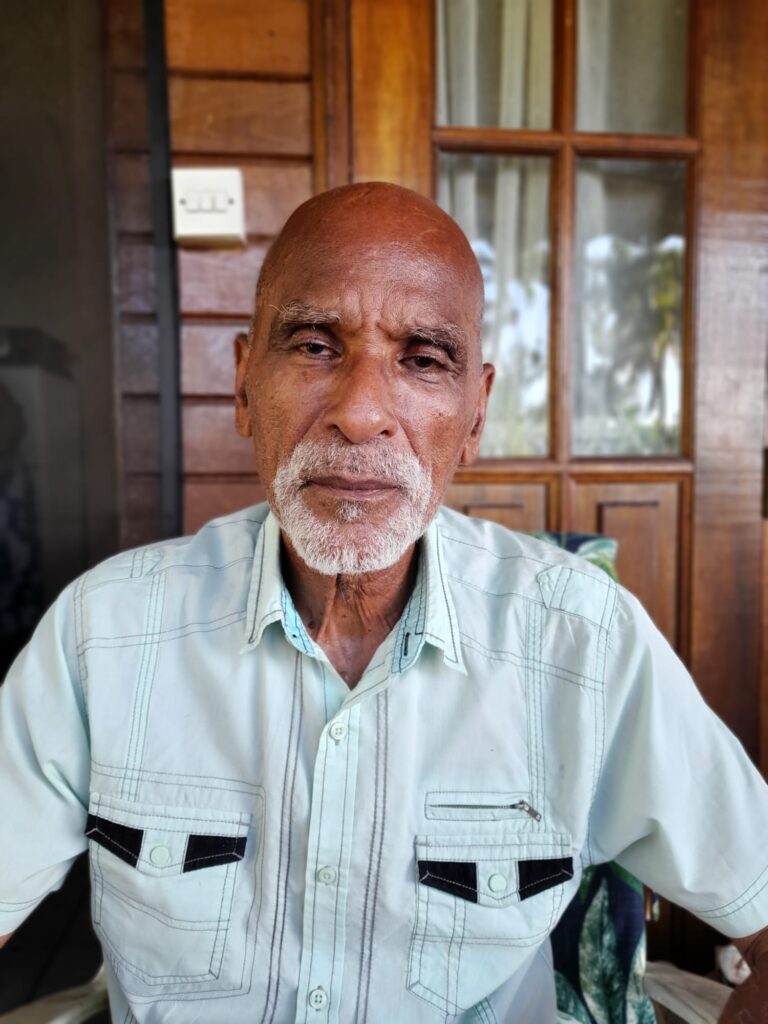Sign up for the COP28 Daily News Tracker for a comprehensive analysis of the climate summit and coverage from our Fellows, right in your inbox.
Since adopting the Paris Agreement at COP21 in 2015 – when world leaders agreed to work toward keeping a global temperature rise this century well below 2 degrees Celsius above pre-industrial levels and to pursue efforts to limit the temperature increase even further to 1.5 degrees Celsius, the world has continued burning.
At the core of the climate crisis are the emissions of greenhouse gases (GHGs), like carbon dioxide, which contribute to an intensified greenhouse effect, elevated temperatures, and the disturbed stability of our climate.
Fast forward to 2023, scientists have reported that we briefly surpassed the critical 2-degree Celsius warming limit set by the Paris Agreement, reaching 2.28 degrees Celsius above pre-industrial levels for the first time in history.
This signals a concerning acceleration of global warming, emphasising the urgency to curb the emissions of GHGs and take immediate climate action to mitigate the impact.
However, carbon markets are still up for debate as delegates congregate for COP28 in Dubai, seven years later.
What is a carbon market and how does it fall under the COP system?
A carbon market functions as a specialised financial system where carbon credits are traded. These credits, or offsets, serve as permissions allowing the holder to release a specific quantity of GHGs into the atmosphere. The core principle involves establishing a ceiling or cap on the aggregate emissions of specific GHGs by entities such as industries or nations.
Now, when looking at the COP, we must pay special attention to the developments taking place under the infamous Article 6.
Article 6 of the Paris Agreement sets out detailed rules for managing carbon markets. Its primary focus is on encouraging countries to work together voluntarily to meet their emission reduction goals, known as Nationally Determined Contributions (NDCs). This includes utilising market-driven approaches and other methods, such as financial cooperation, sharing technology, and strengthening capabilities.
However, specific vital aspects of Article 6, especially Article 6.4, are awaiting official agreement. This will be a major focus area for negotiators at COP28, to avoid double counting, enhance measurements, and provide a more comprehensive view when evaluating effects.
Article 6 is also integral in the positive developments currently being seen in the global carbon market, as financial experts have agreed that public funds are not enough to finance climate adaptation projects, which is vital for the Caribbean, due to the region’s susceptibility to various climate-related risks and vulnerabilities.
Can revenues from carbon markets make a positive impact?
Speaking to Climate Tracker recently, experts from the Caribbean island of Dominica, have expressed the need for carbon markets and a financial facility to enable trade in the region.
According to the report of the Global Carbon Market Project (GCM) done in Grenada and St. Lucia – the Caribbean Community (CARICOM) has begun actively supporting the establishment of the Caribbean Alliance on Carbon Markets and Climate Finance, which was first discussed with relevant stakeholders in July 2022.
Although in its very early stages, it is crucial to consider that by participating in carbon markets, countries like Grenada and St. Lucia can potentially generate revenue by selling carbon credits. This could provide a financial incentive for implementing sustainable practices and investing in renewable energy, contributing to economic growth while addressing climate concerns.
The project involves regional and international partners collaborating, and fostering cooperation to combat climate change. This collaboration can lead to knowledge sharing, capacity building, and better implementation of climate-resilient strategies not only in the Caribbean but potentially worldwide.
But what else can carbon markets contribute to?
We must consider the two sides of this coin.
In a July presentation through Climate Tracker’s public webinar on carbon markets, Vice President at Sustainability Institute of the Caribbean, Brendon James, warned “There must be accountability (Carbon Accounting), through initiatives like renewable energy projects or forestry-based projects – there must be a common methodology of measurement – and there must be a robust system of verification.”
Additionally, participating in carbon markets exposes countries to reputational risk; Business markets are generally perceived as an irrational space – This alone creates potential for dishonesty and double counting by some entities of the carbon market.
The leaders at COP 28 may very well need to establish stringent regulation through the use of Article 6 of the 2015 Paris Agreement – to resolve this major loophole being utilised by certain companies for profit.
And since Caribbean countries such as Guyana, Dominica, and Suriname seriously started looking into carbon markets, with Guyana securing a massive carbon credit deal in December 2022, this is of great interest.

Finding the balance
Claudius Sanford, an economic policy expert, farmer, and lecturer at the Dominica State College, explains how a Regional Carbon Credit Insurance (RCCI) Fund would need to operate to truly benefit CARICOM.
The RCCI Fund would require that a percentage of the revenue gained from each state’s carbon credit trade – be funnelled into an insurance investment scheme, operated and managed by an existing insurance company, and monitored by another financial body like the Caribbean Development Bank (CDB) or the Eastern Caribbean Central Bank (ECCB) – which would then provide significant climate finance to Caribbean states, whenever they make a legitimate claim for climate impacts.
“I still believe we have a fighting chance of exploring and researching what we have left – in terms of our natural environment, our biodiversity, our forest coverage, and calculating our taking of the carbon from first world countries,” Sanford says.

Economist and Former Minister Of Agriculture, Atherton Martin, agrees with Sanford and recommends that existing tools and regional institutions be used to bring the regional carbon credit insurance fund to fruition.
Sanford believes that such a mechanism should be free of corruption, a faster method of disbursement, and a more sustainable and harmonised approach to climate financing for the region.
That being said, he urges CARICOM leaders to refrain from engaging in the act of entitlement, regarding their reliance on Loss and Damage (L&D) funding.
“We need to start fighting a different battle for ownership and making our mark in the global economic space, it cannot always be that we look for ways where we make entitlement claims,” Sanford says.
Economist and Former Minister Of Agriculture, Atherton Martin, agrees with Sanford and recommends that existing tools and regional institutions be used to bring the regional carbon credit insurance fund to fruition.
Sanford believes that such a mechanism should be free of corruption, a faster method of disbursement, and a more sustainable and harmonised approach to climate financing for the region.
That being said, he urges CARICOM leaders to refrain from engaging in the act of entitlement, regarding their reliance on Loss and Damage (L&D) funding.
“We need to start fighting a different battle for ownership and making our mark in the global economic space, it cannot always be that we look for ways where we make entitlement claims,” Sanford says.